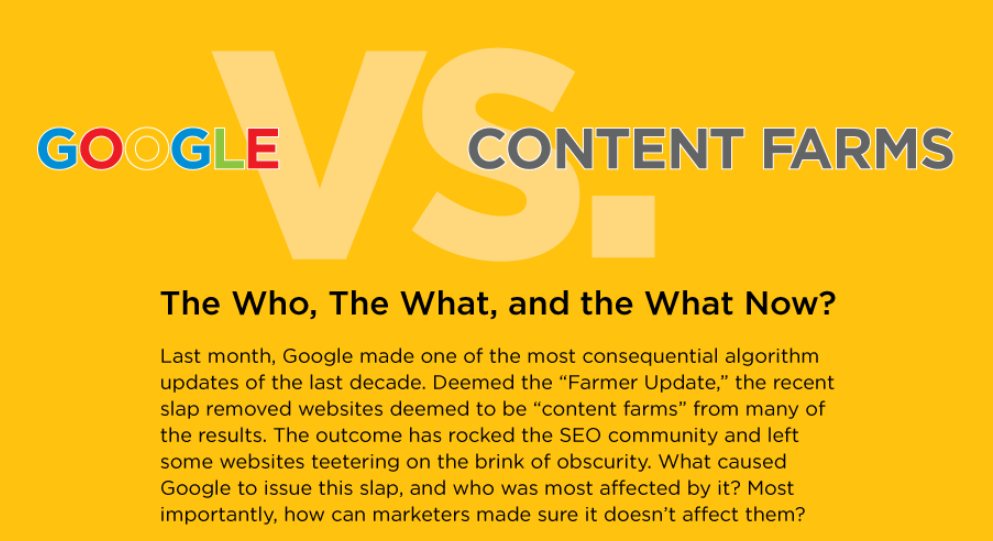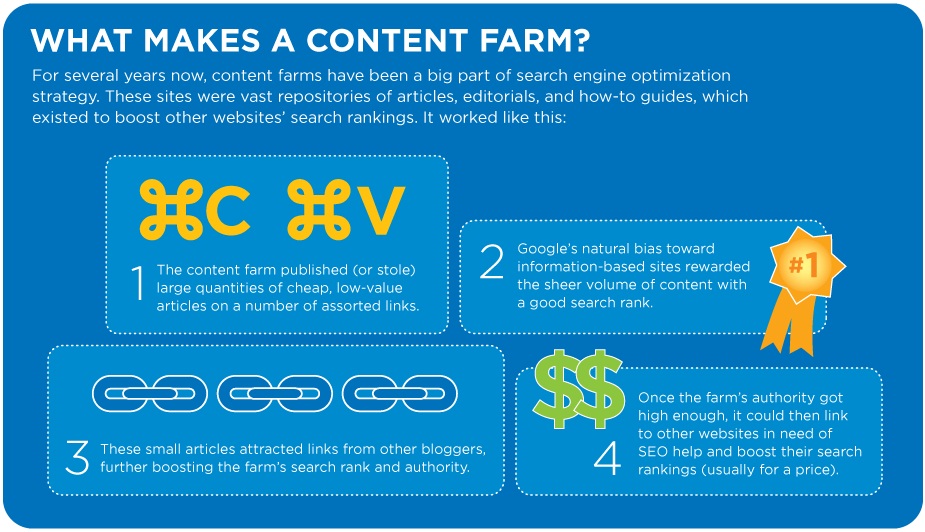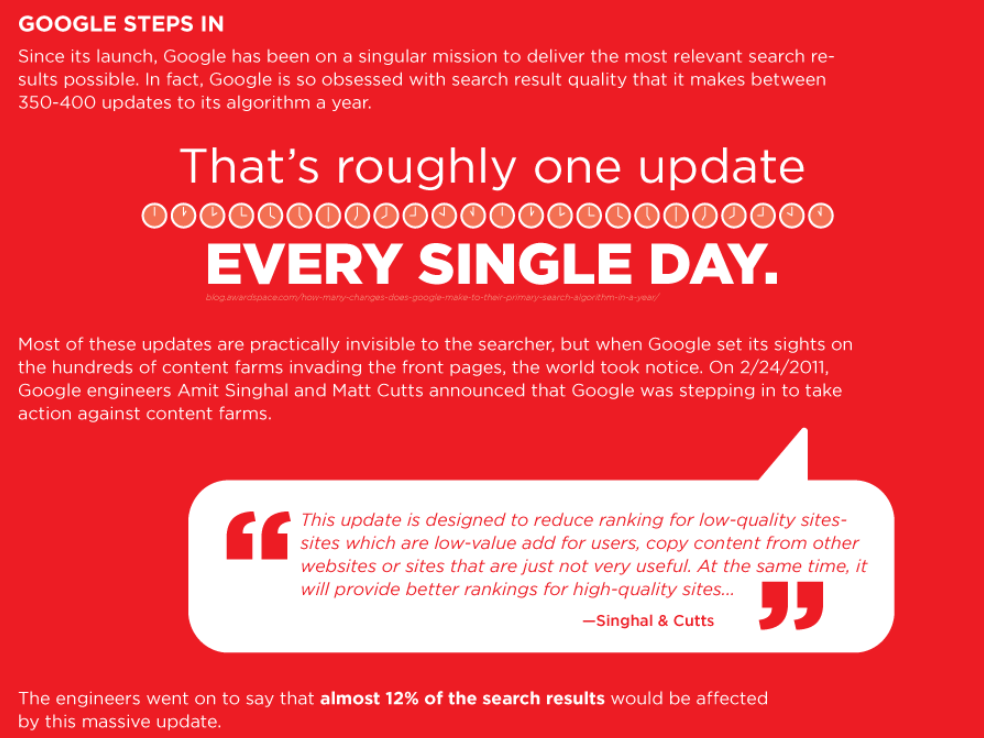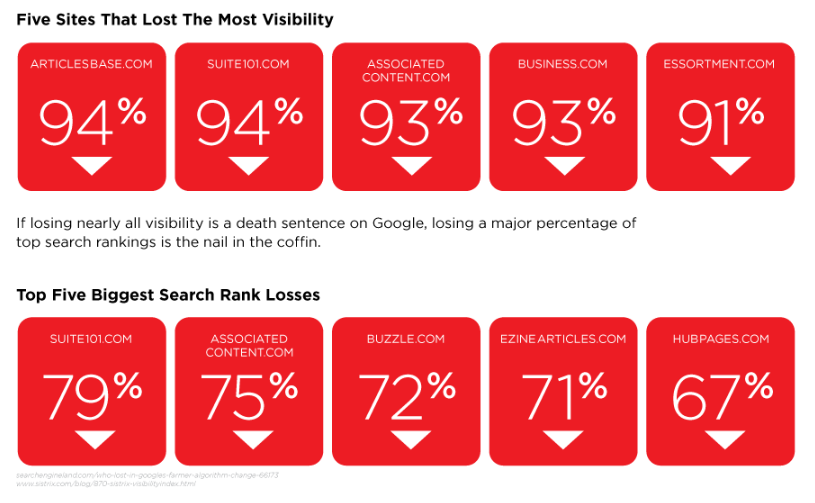One thing that separates Google from other huge tech companies is its ability to adapt based upon mass demands by its users. The demands had been accumulating about low-quality “churn and burn” style content websites dubbed “content farms” when Google responded with a major change to its algorithm last month.
The fallout has been calculated by our friends at Focus in the form of this comprehensive infographic split into several different parts. Click any image to see the complete graphic enlarged.
What Makes a Content Farm?
Farming has been a valid strategy for years utilized as both a revenue generator and a search engine optimization trick. By creating a huge range of content that was interlinked as well as linked-to by websites across the web, the power associated with such a development was hard to underestimate. For many, it was rankings gold.
How Google Stepped In
With around 12% of total searches performed on Google getting affected by the change, marketers and the website owners watched carefully to see if they were in the infected affected group. This qualifies the update (one of hundreds made each year) to the algorithm as major, affecting more sites at once than any other publicly-visible change in years.
Who Was Affected?
When the Google slap came, it hit hard, wiping out millions of tops search ranks across a myriad of supposed content farms almost overnight. The slap affected targeted websites in a number of different ways. Search engine research blog SISTRIX uses a formula to measure how well a domain is ranking for searches related to its content. This is known as “visibility,” and the recent Google slap wiped some sites clean off the map.
Of course, with so many top search rankings removed, there had to be new websites to take their place. As a result, some companies received huge gains in the Google results as their pages rose to claim the empty slots on page one.
Demand Media’s site eHow was considered one of the biggest culprits in farming content, but Google didn’t agree. They actually came out better off on the other end than they were before the change.
The Farming Shift
By looking at eHow’s win and many other sites’ losses, it’s clear that Google is forcing a shift in the way that sites are optimized. One of the best takeaways here can be found in this post about SEO in the car business.
Focus on quality over quantity is what makes the farmer algorithm so important and why our sites have gone up in rankings ever since. Content syndication as an SEO strategy is dead. If you want to win in search, you have to focus on unique content that appeals to the masses.
That’s the key. Quality over quantity. It’s why eHow wins and many others lose. Is their content considered high-quality by professional journalists? No. Is it good enough to show people how to play Uno? Absolutely.








Its pretty clear that Google will always come out on top!
‘Don’t post your articles on blogs… your original content should stay on your blog. Posting copies of it elsewhere could cause Google to deem your site as a scraper and hurt your rankings’…
Oh boy.
1) Post competition links on thousands of blogs.
2) Google </3's Competition
3) Google <3's me
4) ???
5) Profit.
JD, that’s the best explanation I’ve read so far on the ‘Farmer’ update. Do you mind if I use your cool infographics in a blog post (and obviously reference this post)?
Articlebase.com was hit hard. I wonder if they have anything in place to counter these measures.
“Don’t Be Evil” saves the day again. Hopefully Google will find a way to help real small farmers who produce a quality product.